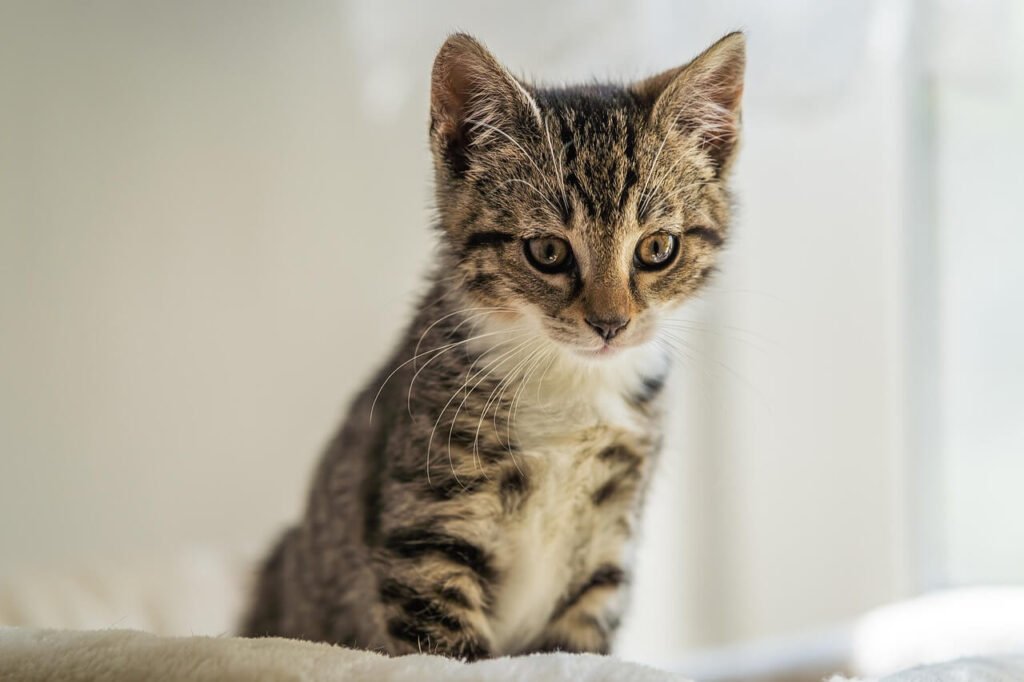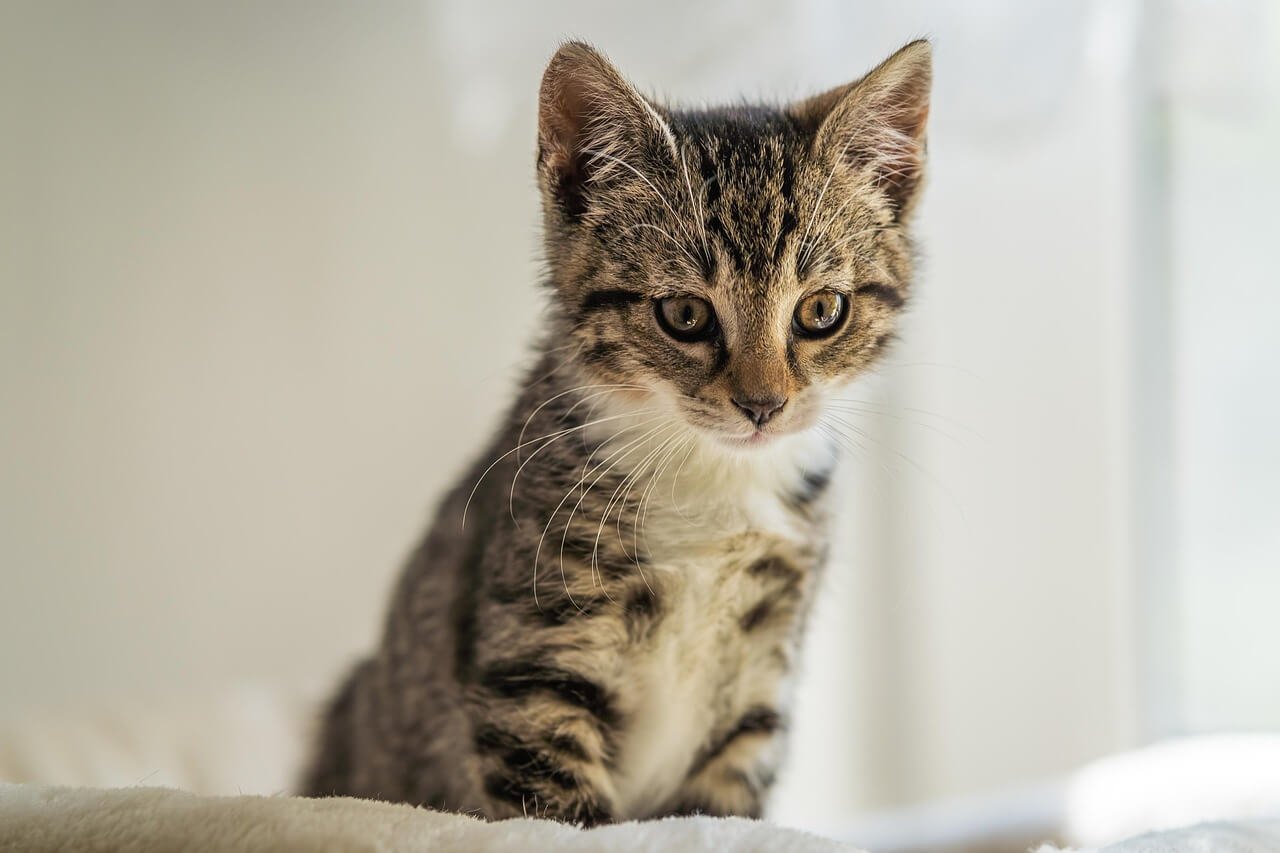Why Does My Cat Lick My Hair?
If you’ve ever found your cat gently nibbling or licking your hair, you might be wondering what’s behind this quirky behavior. While it may seem strange to us, there are several reasons why cats engage in this habit, ranging from affection to curiosity. Understanding the motivations behind this behavior not only strengthens your bond with your feline friend but also helps ensure their needs are being met. In this blog post, we’ll explore the fascinating reasons why your cat licks your hair and how you can respond to this unique display of attention.
Reasons Why Your Cat Licks Your Hair
Cats communicate through actions, and licking is one of the many ways they express themselves. Here are some common explanations for why your cat might be drawn to your hair.
Bonding and Affection:
Cats often groom each other as a way to strengthen social bonds. By licking your hair, your cat may be treating you like a member of their “family.”Curiosity About Scents:
If your hair smells like shampoo, conditioner, or even food, your cat might be intrigued and want to investigate further.Comfort and Familiarity:
The texture or scent of your hair might remind your cat of their mother’s fur, providing them with a sense of security.Marking Their Territory:
Cats have scent glands in their mouths, and licking your hair can be their way of marking you as “theirs.”Boredom or Playfulness:
Sometimes, cats lick hair simply because they’re bored or looking for entertainment.
These behaviors highlight the complex emotional and instinctual motivations behind your cat’s actions.

How to Respond When Your Cat Licks Your Hair
While it’s heartwarming to know your cat sees you as part of their pack, their hair-licking habit might not always be convenient. Here’s how you can handle this behavior appropriately.
Redirect Their Attention:
Offer your cat a toy or engage them in play to redirect their focus away from your hair.Provide Alternatives for Grooming:
Give your cat a soft brush or grooming pad to satisfy their urge to groom something tactile.Set Boundaries Gently:
If the licking becomes excessive, calmly move your cat away and say “no” in a firm but gentle tone.Reward Positive Behavior:
Praise your cat or give them treats when they show affection in less intrusive ways, reinforcing good habits.Monitor for Stress Signals:
If your cat suddenly starts licking your hair excessively, it could indicate anxiety or stress. Observe their overall behavior for signs of discomfort.
By responding thoughtfully, you can manage this behavior while maintaining a strong bond with your cat.
Check this guide 👉 Why Is My Cat Crying? Best 7 Expert Tips!
Check this guide 👉 Why Is My Cat Coughing? Best 7 Expert Tips!
Check this guide 👉 Why Is My Cat Laying in the Litter Box? Best 7 Expert Tips!
Possible Reasons for Hair Licking | Ways to Address the Behavior |
|---|---|
Bonding and affection | Redirect attention with toys or treats |
Curiosity about scents | Use unscented hair products if bothered |
Comfort and familiarity | Provide cozy blankets or soft surfaces |
Marking territory | Reinforce boundaries gently |
Boredom or playfulness | Increase interactive playtime |
Understanding Your Cat’s Emotional Needs
Licking your hair can sometimes signal deeper emotional needs that require attention. Recognizing these cues allows you to better support your cat’s well-being.
Seeking Reassurance:
Cats may lick your hair when they feel insecure or need comfort. Spend extra time cuddling or talking to reassure them.Expressing Loneliness:
If your cat spends long periods alone, they might use hair licking as a way to connect with you. Consider adopting a companion pet or scheduling more interaction time.Responding to Changes in Routine:
Cats are creatures of habit, and disruptions like moving homes or new family members can trigger stress-related behaviors. Maintain consistency whenever possible.Desire for Attention:
Some cats lick hair simply to get noticed. Ensure you’re dedicating enough quality time to meet their social needs.Health Concerns:
Excessive licking could indicate underlying medical issues, such as skin allergies or dental pain. Consult your vet if the behavior seems unusual.
Addressing these emotional and physical needs ensures your cat feels secure and loved.
Preventing Unwanted Hair Licking Behavior
If your cat’s hair licking becomes too frequent or bothersome, taking proactive steps can help discourage the habit without damaging your relationship.
Keep Hair Out of Reach:
Tie your hair back or cover it with a scarf to make it less accessible during vulnerable moments like naps.Use Deterrent Scents:
Apply pet-safe essential oils or sprays near areas where your cat tends to lick your hair. Cats dislike certain scents and will avoid them.Establish a Routine:
Cats thrive on predictability. Establishing a daily schedule for feeding, play, and grooming reduces anxiety-driven behaviors.Introduce New Activities:
Puzzle feeders, climbing towers, and interactive toys can keep your cat mentally stimulated and reduce boredom-related licking.Consult a Professional:
If the behavior persists despite your efforts, seek advice from a veterinarian or animal behaviorist for tailored guidance.
With patience and consistency, you can minimize unwanted hair licking while ensuring your cat remains happy and healthy.
Signs Your Cat Is Showing Affection
Beyond licking your hair, cats exhibit various behaviors that demonstrate their affection. Recognizing these signs helps deepen your understanding of their feelings toward you.
Purring Loudly:
A content cat often purrs to express happiness and relaxation in your presence.Kneading Your Lap:
Kneading is a sign of comfort and nostalgia, reminiscent of kittenhood.Headbutting or Rubbing Against You:
This behavior marks you with their scent, claiming you as part of their territory.Slow Blinking at You:
Known as the “cat kiss,” slow blinking indicates trust and adoration.Following You Around the House:
Cats who shadow their owners are showing attachment and curiosity about your activities.
These behaviors reflect the depth of your cat’s emotional connection to you, beyond just hair licking.
Managing Sensitive Skin or Allergies
If your cat’s hair licking leads to irritation or allergic reactions, here are some tips to protect both you and your pet.
Switch to Hypoallergenic Hair Products:
Fragrance-free shampoos and conditioners reduce the risk of triggering sensitivities in either party.Limit Direct Contact During Certain Times:
After applying hair products, allow them to dry completely before interacting closely with your cat.Check for Skin Irritation:
Inspect your scalp regularly for redness or itching caused by repeated licking.Bathe Your Cat Regularly (If Tolerated):
Keeping your cat clean minimizes the transfer of allergens or irritants during close contact.Consult a Dermatologist or Vet:
Persistent issues may require professional input to identify triggers and solutions.
Taking these precautions ensures mutual comfort without compromising your bond.
Fun Facts About Cat Grooming Habits
Cats are meticulous groomers, and their tendencies extend beyond licking their own fur. Here are some intriguing facts about their grooming habits.
They Spend Up to 50% of Their Day Grooming:
Self-cleaning is a natural instinct that keeps their coats sleek and free of debris.Grooming Stimulates Blood Flow:
The act of licking improves circulation and promotes healthier skin.Mutual Grooming Strengthens Social Bonds:
Cats groom each other to reinforce relationships within their social group.They Can’t Reach Certain Areas Easily:
Cats rely on humans or fellow cats to help clean hard-to-reach spots like their heads.Excessive Grooming Could Indicate Stress:
Over-grooming is a potential sign of anxiety or illness, warranting closer observation.
These insights shed light on the fascinating world of feline grooming and its significance in their lives.
Frequently Asked Questions About Cats Licking Hair
Is it normal for my cat to lick my hair?
Yes, it’s completely normal and often a sign of affection or curiosity.
Should I stop my cat from licking my hair?
Only if it bothers you or becomes excessive. Otherwise, it’s a harmless behavior.
Can hair licking indicate stress in my cat?
Yes, stress or anxiety might cause your cat to engage in unusual licking behaviors.
Does my cat think I’m part of its family?
Absolutely! Licking is one way cats show they consider you a trusted member of their group.
When should I consult a vet about hair licking?
If the behavior suddenly increases or is accompanied by other symptoms like lethargy or loss of appetite, contact your vet.
Embracing Your Cat’s Unique Expressions of Love
While having your cat lick your hair may not always align with human preferences, it’s important to recognize the love and trust behind this gesture. By understanding the reasons behind their actions and addressing any underlying needs, you can foster a deeper connection with your feline companion. Whether it’s through play, grooming alternatives, or simply spending more quality time together, embracing these quirks enriches the bond you share. After all, every purr, lick, and nuzzle is a reminder of the special place you hold in your cat’s heart.
Cat Anaphylactic Shock Treatment Costs: Best 7 Expert Tips! – Learn about costs, treatments, and financial aid options to save your cat’s life.
Exocrine Pancreatic Insufficiency in Cats: Best 7 Tips! – Learn to spot symptoms, manage EPI effectively, and improve your cat’s quality of life with expert advice.
Cost of Dog Anaphylactic Shock Treatment: Best 7 Tips! – Learn about emergency costs, financial planning, and ways to manage expenses for your dog’s care.
Exocrine Pancreatic Insufficiency in Dogs: Best 7 Tips! – Learn to spot symptoms, manage EPI effectively, and improve your dog’s quality of life with expert guidance.





